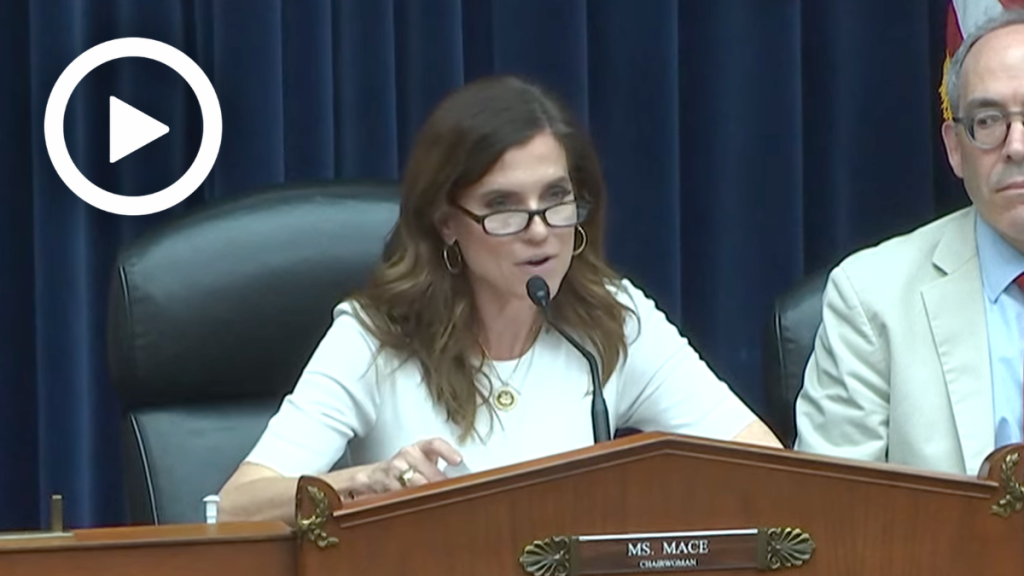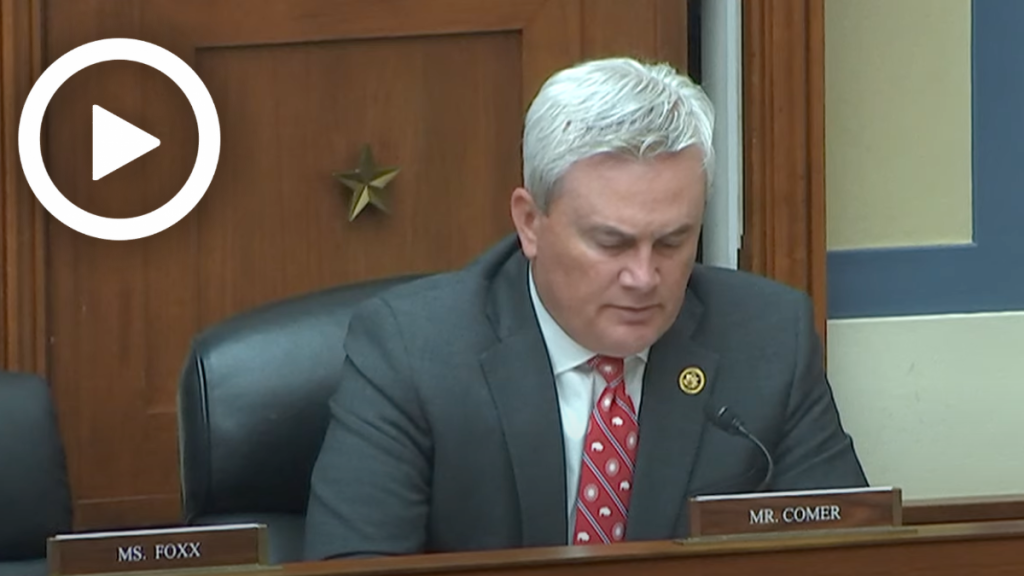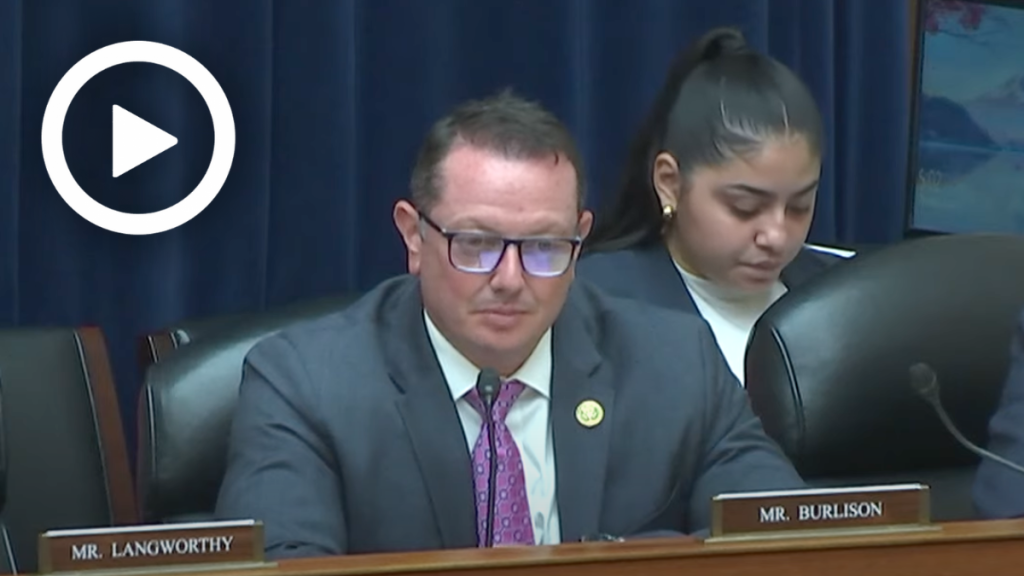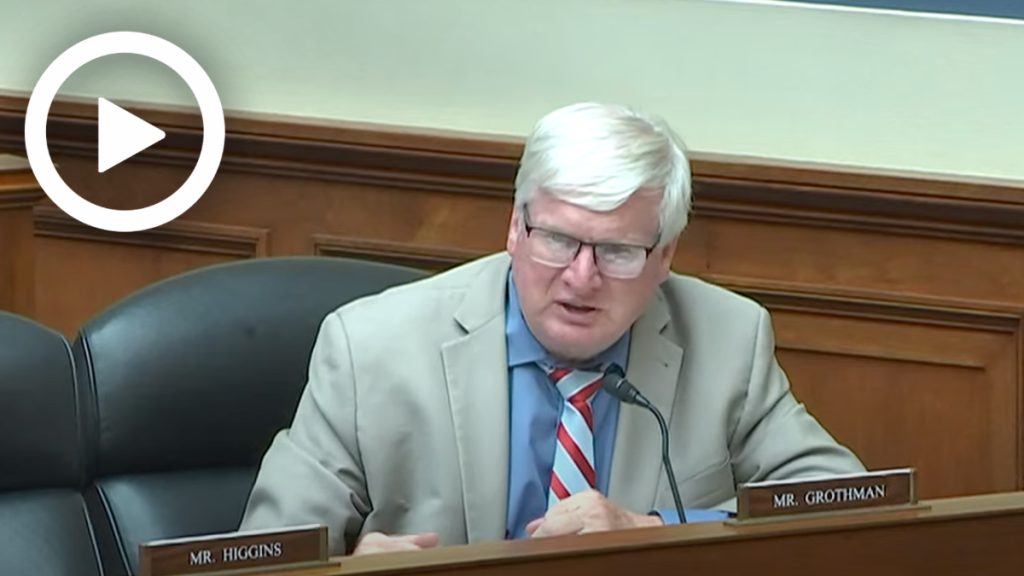Hearing Wrap Up: Biden Administration’s PLA Mandate Boxes Out Small Business, Sidelines Non-Union Workers, and Raises Costs for Taxpayers
WASHINGTON—The Subcommittee on Cybersecurity, Information Technology, and Government Innovation held a hearing titled, “Cutting Competition in Contracting: The Administration’s Pricey Project Labor Agreement Mandate.” Subcommittee members discussed how the Biden Administration’s mandate that firms doing federally-contracted construction work enter into pre-hire collective bargaining pacts called project labor agreements (PLAs) discriminates against the majority of construction workers and firms. Members also highlighted how the White House has no qualms about using the federal contracting process and taxpayer dollars to bestow favors on political allies and intervene in employee relations at private firms, instead of enabling fair and open competition for federal contract work.
Key Takeaways:
PLAs discriminate against the nearly 90 percent of America’s construction workers who are not union members. PLA hiring is typically done through a union hiring hall, and non-union workers who do get hired often suffer wage theft via forced contribution to union pension funds to which they do not belong or benefit from.
- Ben Brubeck— Vice President of Regulatory, Labor and State Affairs at the Associated Builders and Contractors, Inc.—explained how PLAs negatively affect the thousands of contractors within his organization: “On behalf of Associated Builders and Contractors, I am giving a voice to the thousands of quality large and small contractors and millions of their employees who want nothing more than to compete to deliver taxpayer-funded projects safely, on time and on budget for their private and government customers. But they are effectively boxed out from doing so via government protectionism benefiting special interests that is the foundation of the Biden administration’s harmful pro-PLA policies and the stated goal of being the most pro-union presidency in American history. My objective by participating in this hearing is to help lawmakers, regulators and the American public understand how unnecessary Biden administration policies pushing PLAs are benefiting special interests, hurting more than 89% of the U.S. construction industry workforce that does not belong to a union and undermining taxpayer investment in infrastructure.”
The Biden Administration’s rule is a radical, untested experiment at the federal level, where only a handful of federal contracts have ever required PLAs—even when agencies were strongly encouraged to use them during the Obama Administration.
- Aric Dreher— Vice President and General Manager of Cianbro— testified that “by mandating PLAs, the Biden administration is effectively sidelining our industry-leading workforce on projects funded by the federal government and all taxpayers. In the past, PLA mandate advocates have alleged that PLAs ensure safe workplaces, insinuating that nonunion construction companies have less-safe workplaces. This is not true. We need Congress and the Biden administration to champion policies that are inclusive and encourage all qualified contractors and their skilled workforces to compete to build long-lasting, quality projects throughout America.
The PLA rule is the latest effort by the Biden Administration to weaponize the federal contracting and award process as a tool to empower union allies and interfere with private sector employer-employee relations—at the taxpayers’ expense.
- Glenn Ledet—Executive Director of the Louisiana Coastal Protection and Restoration Authority—Explained how the Biden Administration’s PLA rule raises costs across the board for U.S. taxpayers footing the bill: “This PLA rule brings up concerns about cost increases from the specific requirements of a project specific labor agreement, reduced bid submissions from local and qualified contractors further driving up costs, project delays, and reduced opportunities for the local workforce. These risks and anticipated outcomes are problematic.”
Member Highlights:
Subcommittee on Cybersecurity, Information Technology, and Government Innovation Chairwoman Nancy Mace (R-S.C.) discussed the harmful impact the Biden Administration’s PLA mandate is having on small businesses.
Rep. Mace: “Most of your members are small businesses and under the PLA mandate, all subcontractors on a project must abide by the terms of the PLA, even if they had no role in negotiating the terms. How do small businesses feel about the PLA mandate?”
Mr. Brubeck: “They are devastated by it. I’ve been getting calls every day from small businesses who are saying ‘I can’t build federal contracts in my own backyard, and I get 80 percent of my revenue from these types of contracts, once I work through my backlog, I don’t know what I’m going to do. I may have to lay off workers. There are no exemptions in the rule for small businesses at all, the PLAs are very complicated to negotiate for small businesses direct contractors. A lot of the construction trade unions are going to have a hard time negotiating these contracts with small businesses because they have no familiarity with doing so. It’s a killer for small businesses especially in a time where the federal government is begging for federal contractors, especially small businesses to compete for this work. We’ve seen a massive decline in small business participation in the construction industry for federal contracts by more than 60 percent. So this is going to make it worse on top of all these other regulations that the industry is facing.”
Chairman James Comer (R-Ky.) discussed how PLAs hold firms hostage to the strict and unnecessary regulation inflicted upon businesses by PLAs.
Chairman Comer: “Is it accurate to say the PLA rule makes your firm hostage to outside labor unions since you can’t perform federal projects unless you agree to cater to their terms?”
Mr. Dreher: “Absolutely.”
Chairman Comer: “So what sort of provisions harmful to non-union contractors and their workforce might a PLA include?”
Mr. Dreher: “Taking a step back and looking at the whole picture here, I think we can all agree that the industry is short half a million workers right now. From 2009 to 2023, 12 out of 3, 210 contracts had a PLA. We’re not against PLAs, we don’t want PLAs mandated. This industry needs fair and open competition, we have a lot of work to do rebuilding our bridges, our highways, our naval infrastructure. And adding another roadblock in like this, it doesn’t make sense.”
Rep. Eric Burlison (R-Mo.) examined how PLAs reduce the number of bidders for federal contracts, leading to less competition and higher costs for taxpayers.
Rep. Burlison: “Would it be safe to say that the new rule is reducing competition, or that it is reducing the number of applicants for these jobs?”
Mr. Brubeck: “Absolutely, I hear both from contracting officers in federal agencies and our own members who say they want to pursue these contracts but that they can’t due to the PLA requirement on there. I’m aware of a number of projects where there’s already been a reduction in bidders who are pre-qualified for phase 1 of the project, of the solicitation and they dropped out the minute the PLA was added during phase 2 of the solicitation so there is going to be real world examples coming out and projects are going to have to be re-bid and that’s going to delay more construction projects that we all need.”
Rep. Glenn Grothman (R-Wis.) broke down how PLAs remove the right to choose from workers who are not involved in a union.
Rep. Grothman: “In what ways to PLAs potentially infringe on the freedom of choice for workers who may prefer not to join a union?”
Mr. Brubeck: “Like I mentioned before, PLAs force contractors to hire most or all of their labor from union hiring halls and leave their own employees who are non-union workers on the sidelines, and they can’t work on those projects. They have to follow union work rules and pay into union pension and benefit programs. It’s effectively telling non-union workers you can’t participate on the projects and if there is an exception to participate, the non-union workers have to pay into these pension and benefit plans, and they will never receive the benefits that they pay into those plans unless they join a union and become vested in those programs.”
CLICK HERE to watch the hearing.



